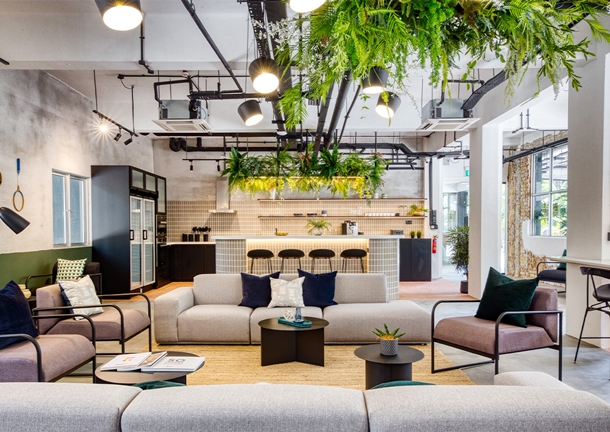In PropertyGuru’s study of about 985 respondents aged from 22 years and above, we discovered that 58% of Singaporeans say they are willing to pay a premium for an environmentally sustainable home.
As part of the government’s pledge to increase an estimated green cover of 45-60% across new housing developments to aid with carbon emission management and the development of even more community gardens island-wide, the move towards integrating eco-conscious living inside the home is also becoming increasingly encouraged. This article will break down some of the key sustainable related insights and practices Singaporeans expressed positive sentiments towards adopting.
Sustainability is worth it

The findings also showed that solar panels (73%), smart cooling features (68%) and water recycling system (36%) were the top 3 sustainability features that Singaporeans want to have. Diving deeper into the findings however, showed a bigger contrast; less-affluent households were more willing to pay for pollution-absorbing interior (41%) and rooftop organic farming (24%). These are all features which facilitate the saving of money that would otherwise go towards water, anti-pollution cleaning, and produce.
Meanwhile, mid-income (32%) and high-income (37%) Singaporeans were more interested in rainwater harvesting.
The willingness to pay more for environmentally sustainable homes shows that Singaporeans are open towards the adoption of sustainable features and eco-friendly home practices into the urban city life.
Sharing is caring?

While co-living (a concept of shared housing where residents share the communal areas and facilities) has taken most parts of the world by storm, it seems that most Singaporeans are not ready to embrace it, though, there’s a bit more interest among younger Singaporeans.
In the study results, only 1 in 6 of the respondents expressed an interest in co-living, with the biggest interest shown about Singaporeans between the ages of 22-39 years old. Naturally, singles (25%) and separated/widowed (33%) were among the most open towards the idea of co-living spaces.
A key environmental benefit of co-living is its low energy output due to shared use of energy sources (heating/cooling, water, electricity) and reducing energy consumption, alongside the circular economy of resource borrowing and food sharing that comes with the communal living system, reducing the amount of overall waste that would otherwise go into landfills.
Paint the town green

The trend of rooftop gardening is on the rise internationally, greening up the urban landscape and bringing communities together through the shared ownership and responsibility involved in this practice.
In Singapore, the push for rooftop gardening and indoor farming is particularly high among those that were 60-years-old and above who are likely to benefit from the social and communal aspects, who also have more time on their hands.
As mentioned, respondents ranked rainwater harvesting in their top 3 sustainable feature preferences, which could contribute towards the maintenance of a rooftop garden and will allow residential and/or commercial buildings to be self-sustainable.
Pioneering the local grow-your-food movement, Edible Garden City has opened a rooftop garden on the 7th storey of Funan Centre. Open to the public with the intention of reconnecting us to nature, the garden has more than 50 types of fruits, vegetables, and herbs.
One man’s trash

Did you know that 809,800 tonnes of food waste alone were sent to landfills by Singaporeans in 2017? In a culture where the over-ordering of food is embraced, the best way to combat food waste is through preventative measures to change consumption habits then instil appropriate disposal methods in the form of composting.
We found that younger Singaporeans between the ages of 22 and 29 were the most supportive of composting at home or the collection of food waste, which has increased since last year’s survey. Interestingly, the interest in food waste composting was higher among our female respondents.
Converting household food waste into compost will further our nation’s self-sustainable and environmentally friendly agenda, bringing valuable nutrients back into our soil to keep our city green and our rooftop gardens thriving!
For more property news, content and resources, check out PropertyGuru’s guides section.
Looking for a new home? Head to PropertyGuru to browse the top properties for sale in Singapore.
Need help financing your latest property purchase? Let the mortgage experts at PropertyGuru Finance help you find the best deals.
Disclaimer: The information is provided for general information only. PropertyGuru Pte Ltd makes no representations or warranties in relation to the information, including but not limited to any representation or warranty as to the fitness for any particular purpose of the information to the fullest extent permitted by law. While every effort has been made to ensure that the information provided in this article is accurate, reliable, and complete as of the time of writing, the information provided in this article should not be relied upon to make any financial, investment, real estate or legal decisions. Additionally, the information should not substitute advice from a trained professional who can take into account your personal facts and circumstances, and we accept no liability if you use the information to form decisions.


